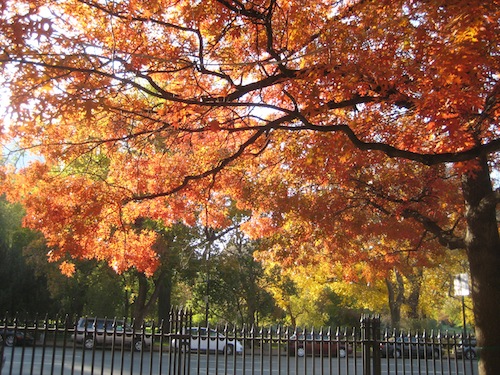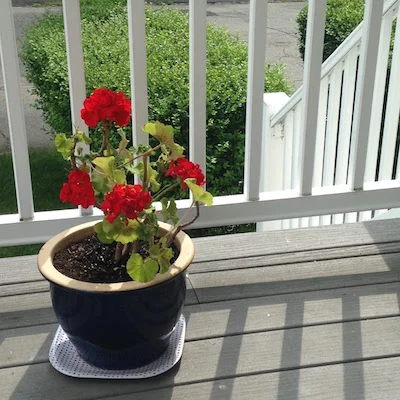Recently, my husband and I reached the two-year anniversary of our move from West Texas to Boston. The first anniversary felt both weighty and giddy; we could hardly believe we’d survived a whole year in our new home. We had left blistering heat on the West Texas plains for a greener, more erudite land where summers were milder and fall was a riot of color, scented with apples and woodsmoke. Our first winter was long and bitterly snowy, but we learned to shovel snow and wear layers, and we felt deep pride in having stuck out an entire year in a place so divertingly unlike our homeland.
This two-year anniversary, this second milestone, feels different.
Unlike many young people who move to Boston, we didn’t arrive with a set timeline. We felt like pioneers, reversing the typical American journey, driving two thousand miles to New England from a place most Northeasterners still think of as the Wild West. None of our parents or grandparents had ever tried to make a life back east; we were striking out on our own, all our possessions in a Budget truck packed to the top, a new job ahead for my husband and an unknown job market waiting for me. He spent the first six months driving around Boston’s southern suburbs, learning the roads of the towns where he would visit clients for in-home therapy. I spent them riding the subway into downtown Boston, where I walked among bookstores and museums, coffee shops and old winding streets, past trees whose leaves lit my way like orange and golden torches.
When I finally found a job — downtown, in the middle of all that beauty — I rejoiced in my good fortune. I bought a monthly subway pass and sensible walking shoes, and made sure I always had a book in my shoulder bag to last me through my new commute. Walking the downtown streets on my lunch break, taking weekend cruises around Boston Harbor, picking apples with friends in an orchard west of the city, sampling authentic Italian pastries in Boston’s North End, we threw ourselves into that first year, savoring the new pleasures abundant in our new home.
Now, our friends who moved here for graduate school (many of whom arrived when we did) are finishing their degrees, starting to move away. A few have already left. By contrast, we have no fixed end date for our stay here, though I tell people I doubt I can withstand these New England winters forever. What I really mean is that my heart quails at the coldness of New Englanders, in the shops and in the subway and at the office. Most people are polite, if reserved, but after two years of constant attempts to reach out and form friendships, our best friends are still the ones who came with us from Texas. Most of our other friends are fellow transplants from other states or countries who remember how it feels to be strangers in Boston. Searching for friendships here often feels like quarrying the granite for which our town is known. At first, it seemed like an exciting challenge; after two years of trying, I am weary, and often lonely.
If this were the end of our time in Boston, it would be easier to view the past two years as a completed story arc, to sift through the weeks and months for meaning, pointing to certain events as watershed moments. As a writer, that’s what I do, combing back through my experience, making meaning out of everyday occurrences and occasional big, life-shifting ones. I have spent a lot of time trying to figure out the lessons of Boston, the particular blessings of our time here. I want to know the reasons for all the loneliness, all the striving, all the struggling we’ve done since we arrived. These lessons would stand out in sharper relief if our time here were ending.
But this is merely an anniversary, a pause along the path. We are no longer at the beginning, nor are we quite at the end. We are in the middle, the place where everything happens before you know why it does. The place where, in my favorite novels, the characters live through all kinds of exciting, meaningful, sometimes harrowing events, without the clarity that often comes at the end. In a story, the middle is both exciting and necessary; in life, it can feel long and frustrating. Things either shift constantly, leaving us disoriented, or they drag on with little change, with aching monotony. And it isn’t yet given to us to know why.
After spending eight years in the same smallish college town, my husband and I were both restless, ready for a change. We did not want to emulate so many people we knew, who came to Abilene for college and never left, living much the same lives at thirty and fifty as they did at twenty-one. We wanted not just to taste life in a different place, but to sit down and make a meal of it, feast on it for a while, learn the flavors and smells of a completely new cuisine.
Two years in, we have gotten our wish, in spades. And while I love tasting the cannoli and clam chowder, treasure the books I’ve collected from local shops and author signings, cherish the memories of red leaves and golden autumn light, I miss my home. The longer I stay here, the more I realize that I am a stranger, that the center of my universe still lies on the drought-scorched plains two thousand miles south and west of here. I miss my family, now that I only get to see them two or three times a year. I miss Tex-Mex food, balmy weather in March, friendly smiles and hellos on the street, the twang of country music, the warm, all-inclusive word “y’all.”
And who, after all, will remember us when we leave here? Will we be just another idealistic young couple from the South who came up here for a few years to have an adventure and then left? Will we leave any mark on our workplaces, our apartment, our city, our friends? Or will all those shift and dissolve too, until the city won’t recognize us as former residents when we come back to visit?
I don’t know. It’s hard to tell now, from here, in the middle.
I don’t know what lies ahead, either in the rest of the middle or beyond it. I don’t know where the middle ends, or where the end begins. I’d prefer the heightened perspective of knowing, without the sadness and uncertainty that often accompany endings. I’d like the clarity without the finality, the direction without the melancholy, so I can sift through the sand of the past two years for a few jewels, trace the winding maze to its X and point to a spot on the road: Here. I’d love to be able to mark and define what we’ve been looking for, what we’ve been working toward, the whole time.
But the process, I know, doesn’t work like that. Instead, I am looking back through my own scattered signposts along the road, rereading journal entries and blog posts, looking at photos, remembering all we’ve seen and known and done in Boston so far. I am breathing a prayer of thanks for the few true friends we’ve made and for the people back home who are still cheering us on, even as they wait for us to come back. And, like any character worth her salt, I will then take a deep breath and step forward into the next year, into the next part of the middle. The next part of the unknown, the next page. The next chapter. The next day.
 Photo: Katie Noah Gibson
Photo: Katie Noah Gibson
Katie Noah Gibson is a writer, editor, knitter, and compulsive tea-drinker based in Boston. Born in Texas, she’s a lifelong Anglophile but loves to travel just about anywhere. She blogs at Cakes, Tea and Dreams and tweets regularly.
















